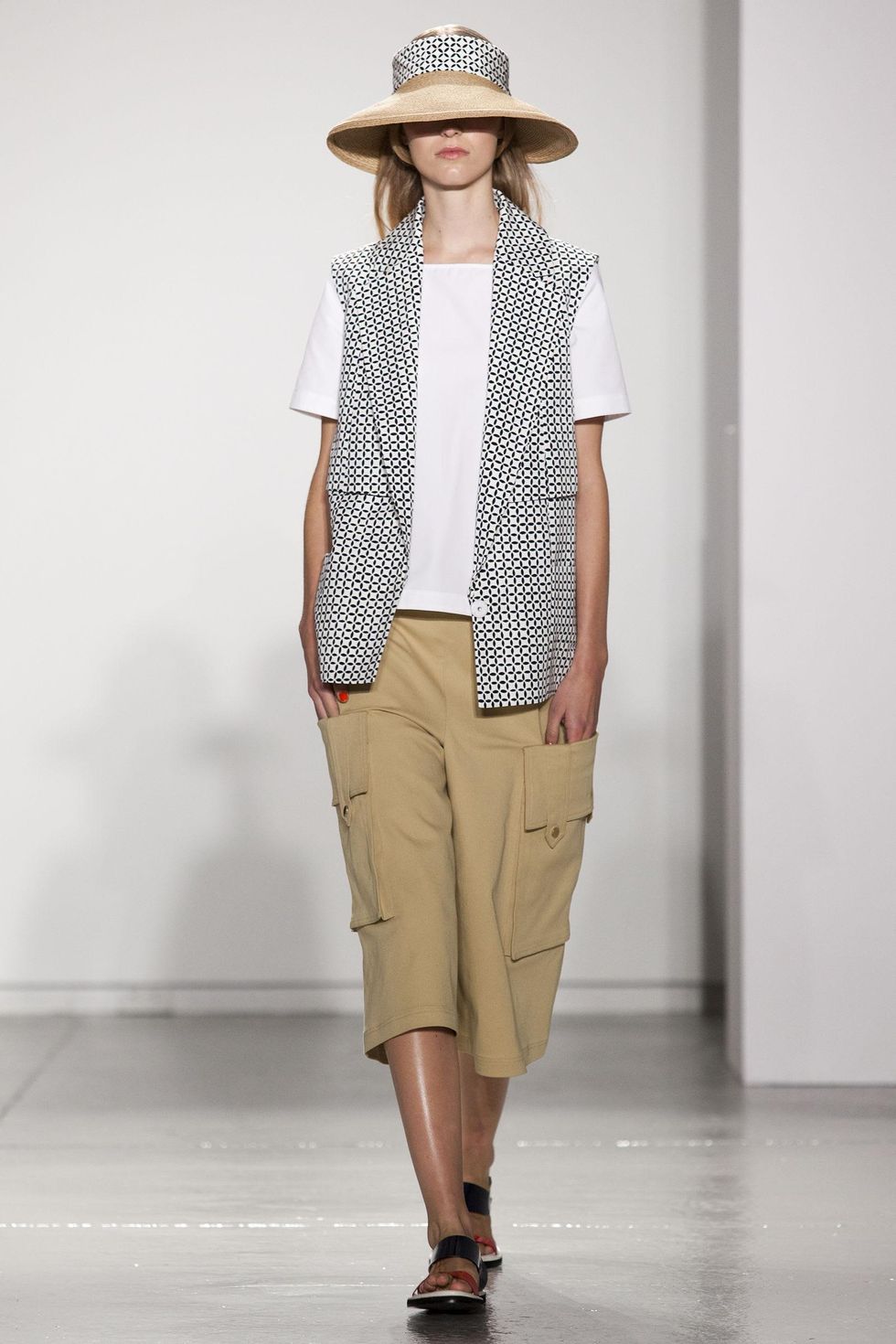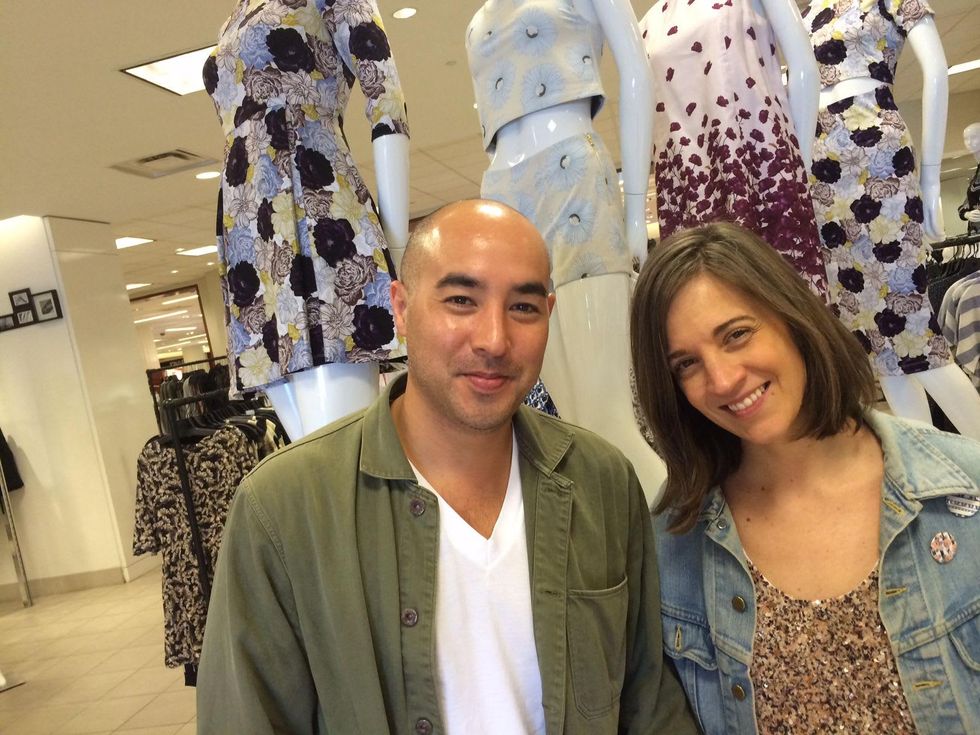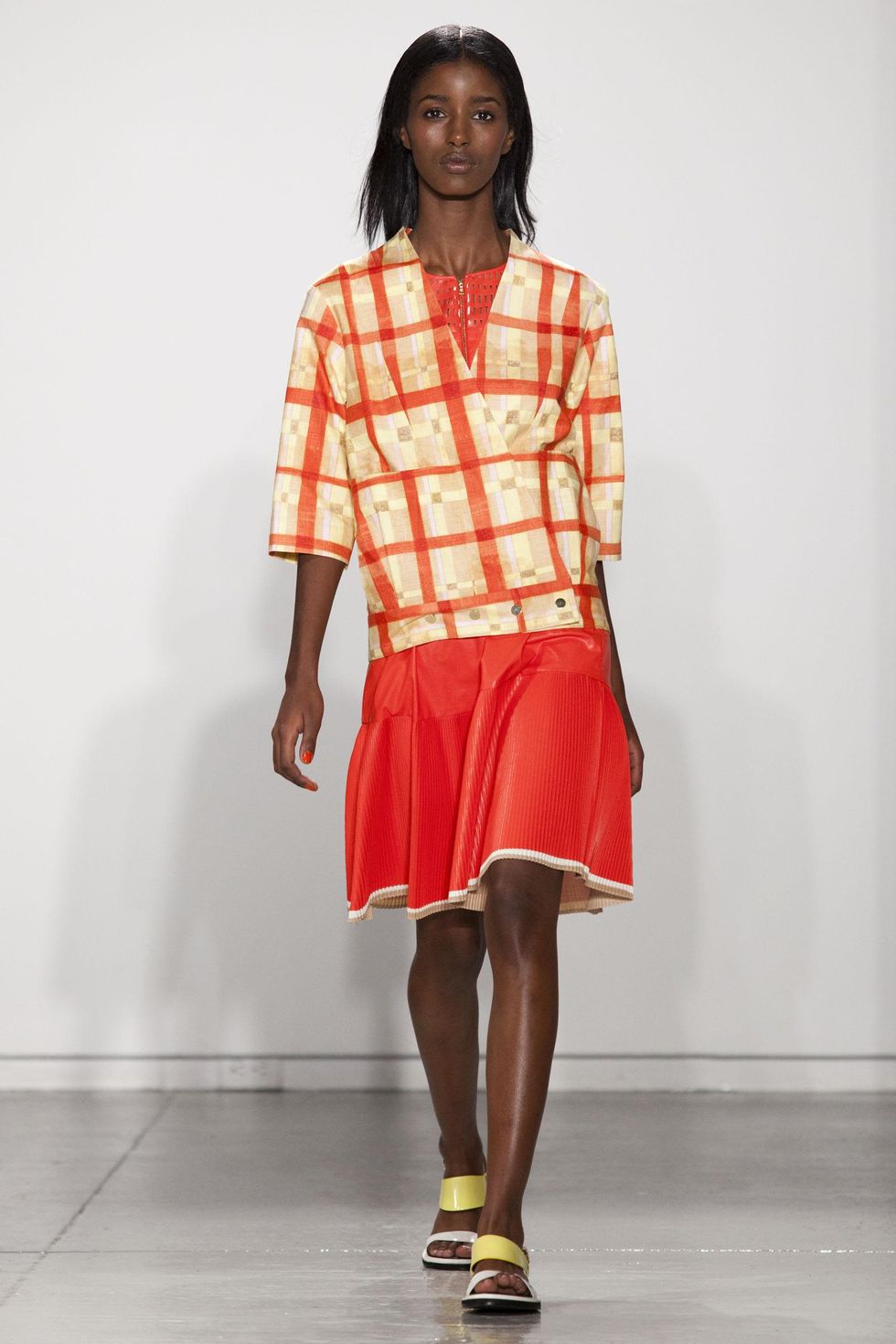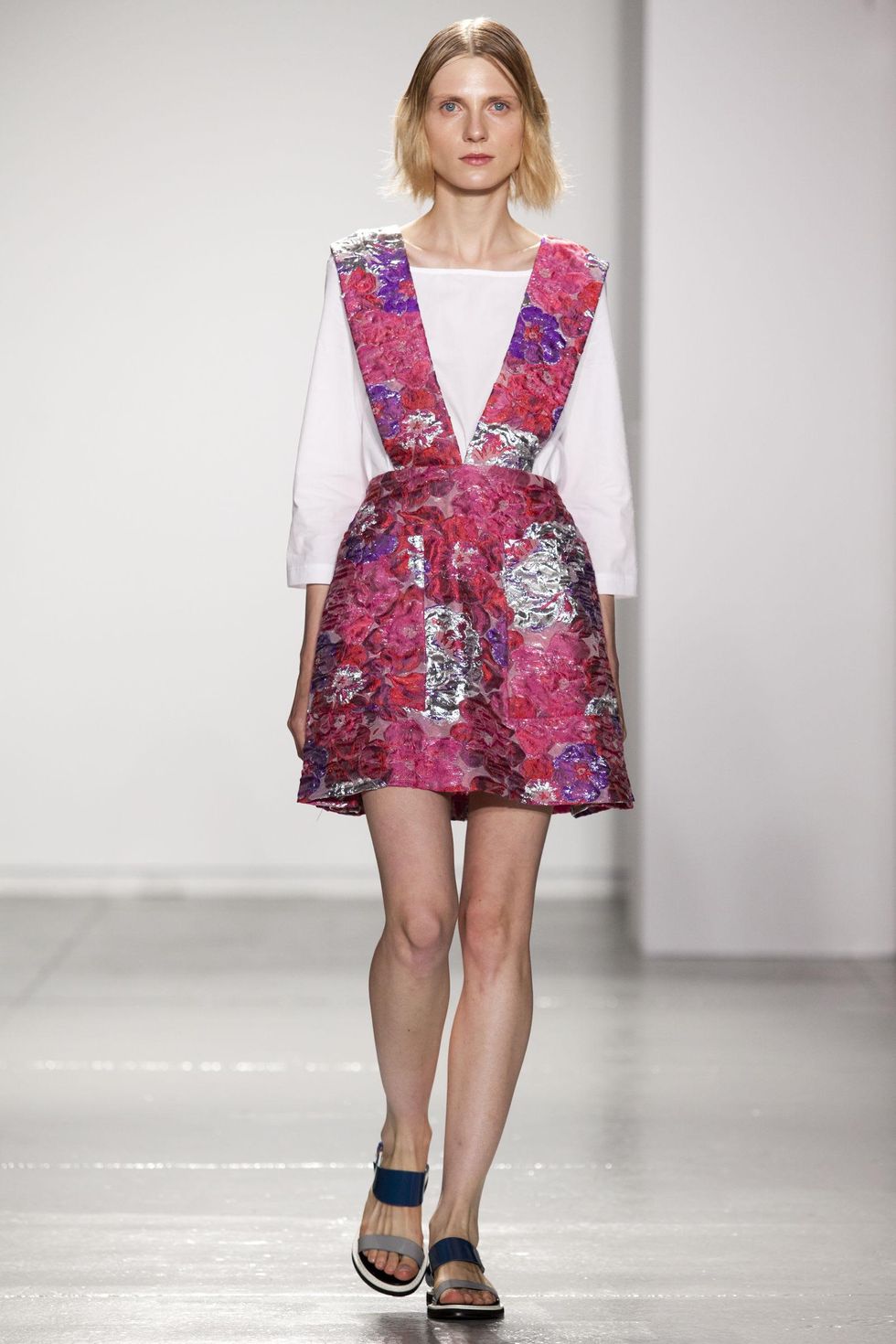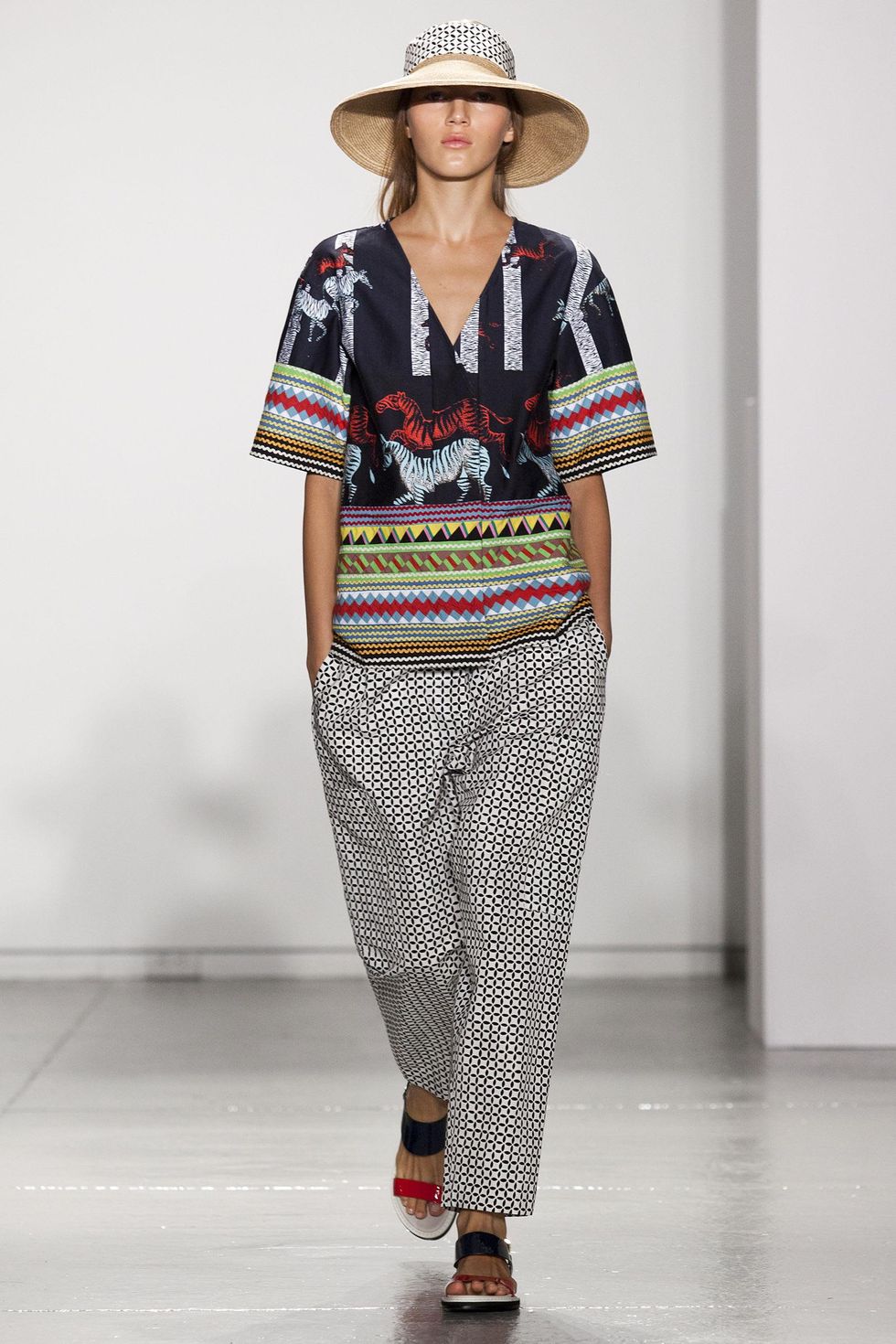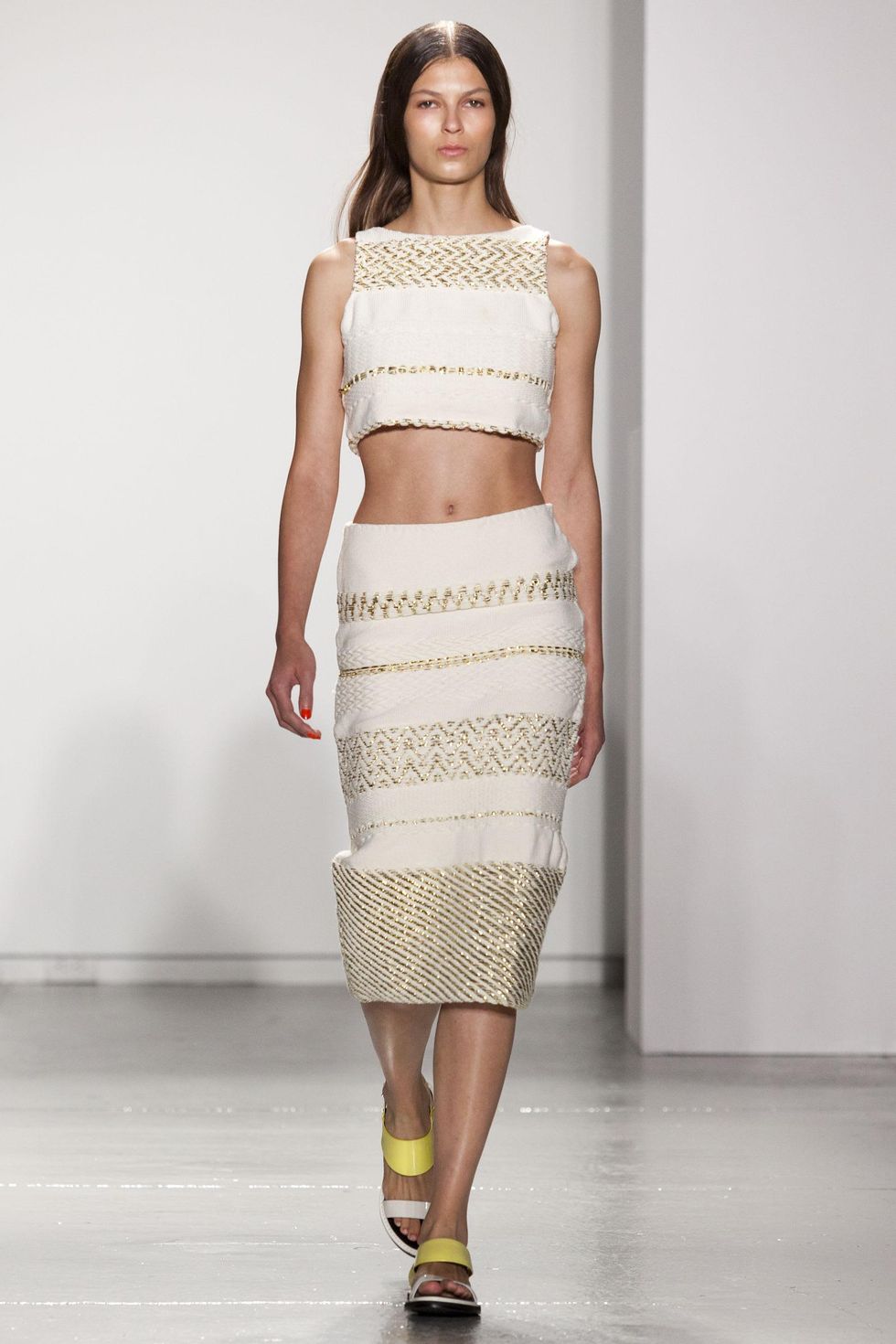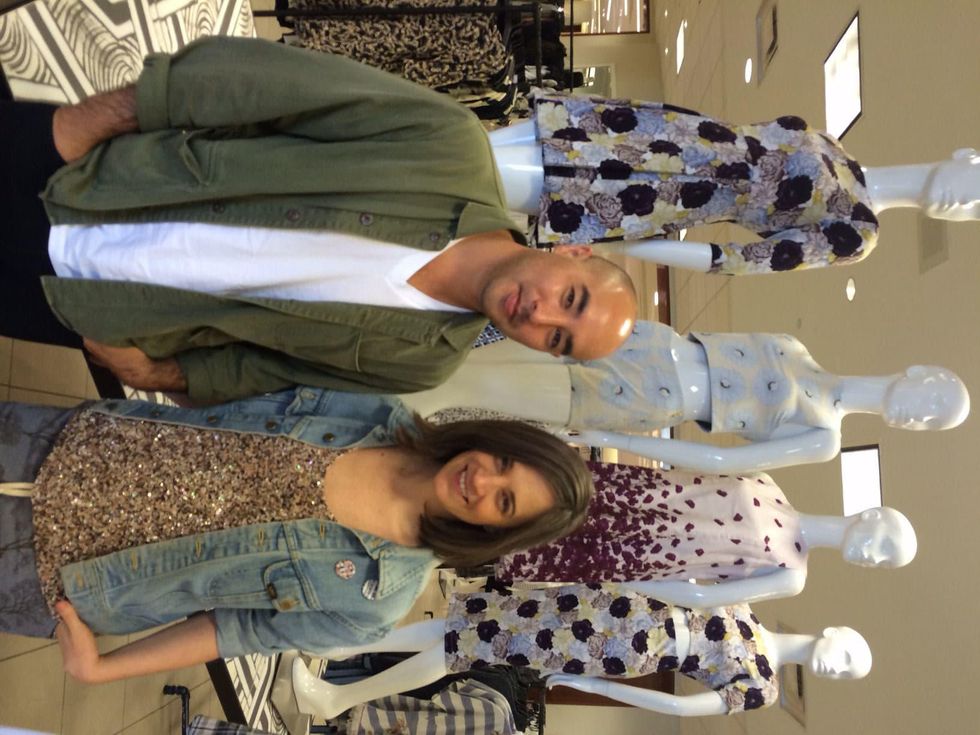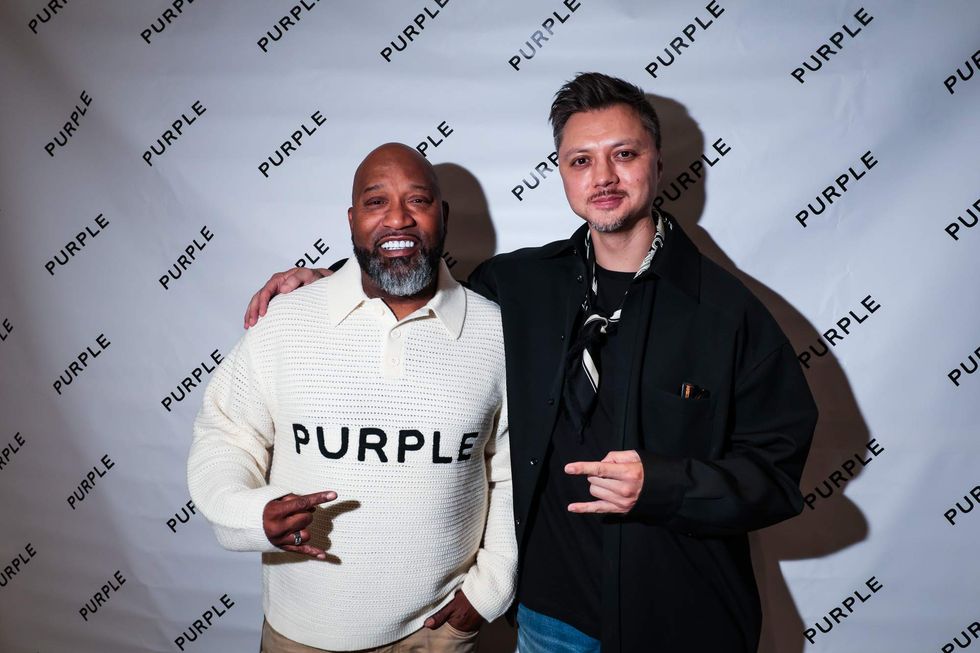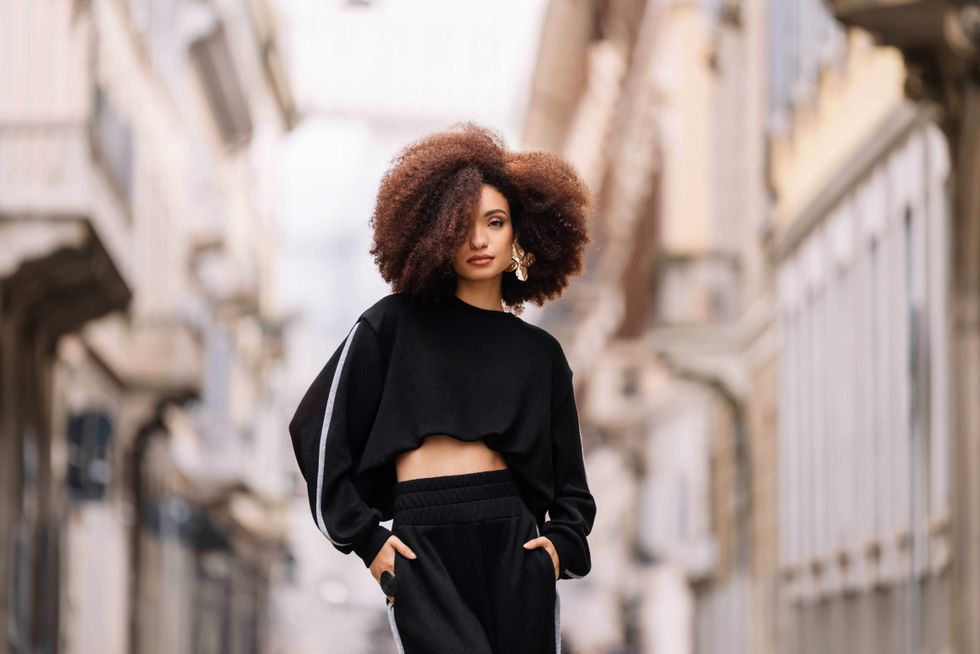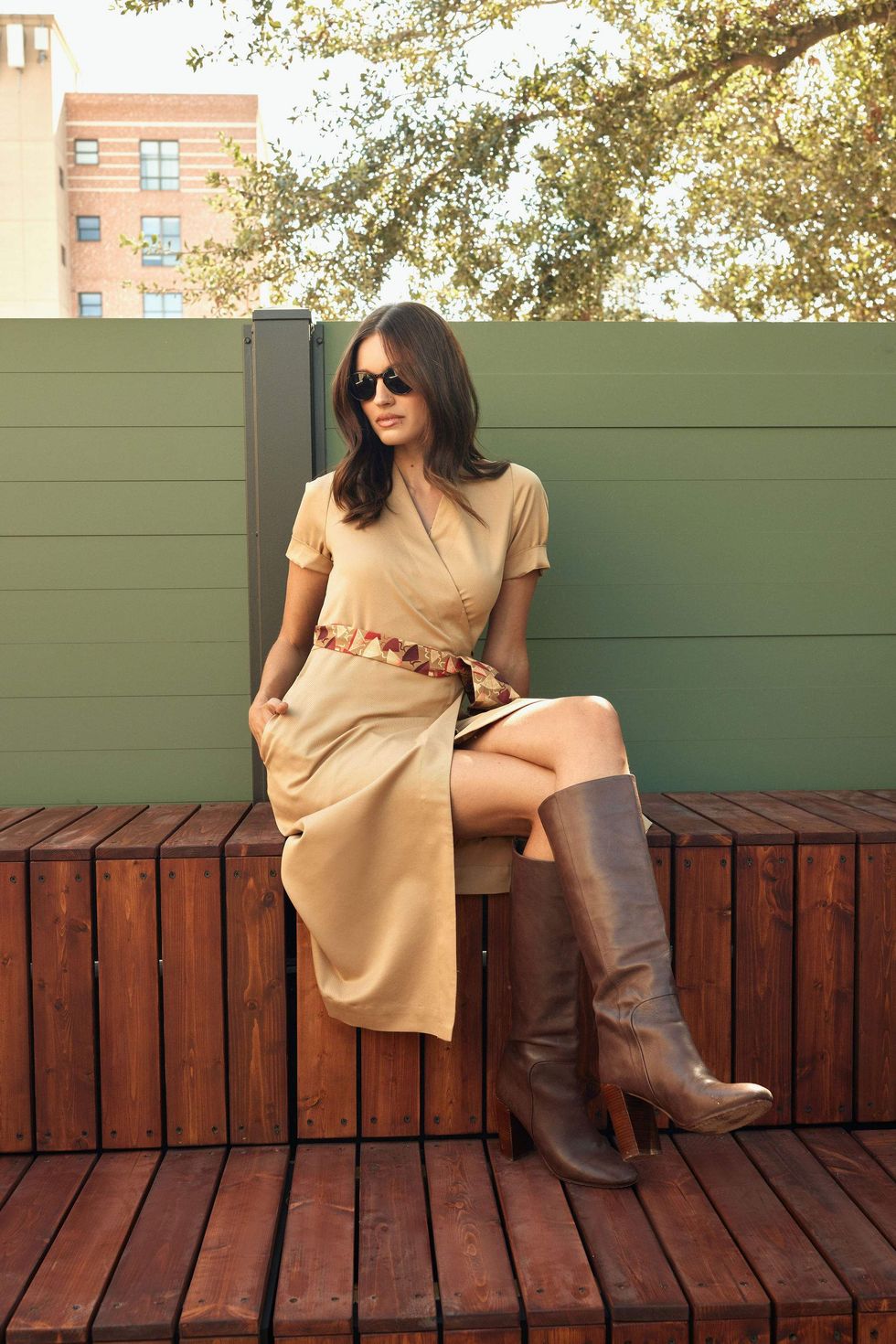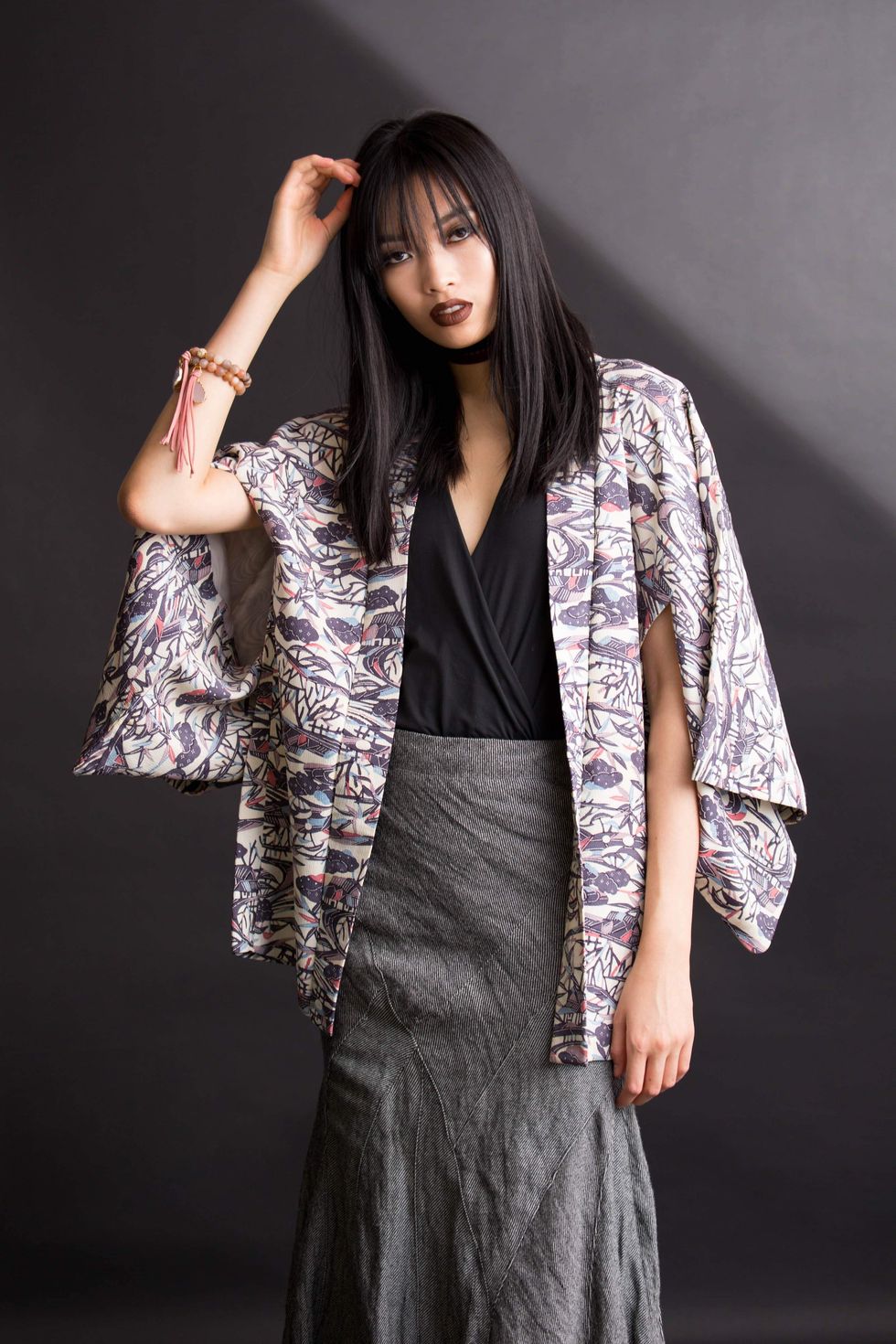Hot Fashion Duo
America's hottest new fashion duo hugged Anna Wintour and lived to tell about it
Since the design label Suno burst on the scene nearly five years ago, designers Erin Beatty and Max Osterweis have captivated fashion-forward women by breaking the rules. They create attention-getting, often voluminous clothing in bright colors, using distinctive African prints and quirky details. They often say what's on their mind. Heck, they even did the ultimate "no-no" — Osterweis once hugged icy Vogue editor Anna Wintour, much to her horror.
"I thought everyone hugged and kissed in this industry," Osterweis explained during a recent appearance with Beatty at Saks Fifth Avenue. "(But) she hasn't punished us for that."
Indeed, the duo are fashion darlings, having garnered the Swarvoski Women's Wear Designer of the Year award from the Council of Fashion Designers of America last year and recently been named finalists for the first-ever LVMH Prize for Young Fashion Designers, bestowed by the owners of Louis Vuitton. Next month, they will have 15 minutes to showcase their fall collections to an illustrious panel of judges in Paris for a chance to win a prize of more than $400,000.
Houston women "like to show off their bodies, feel feminine and stand out," Beatty said. "Women here think they dress conservatively. But compared to the rest of America, they're so much more daring."
"Being included is so amazing," said Beatty, who lived in Houston briefly when she was in the first-grade.
Among their celebrity clients are first lady Michelle Obama, who wore a colorful red, white and blue Suno halter top soon after they launched their business in 2009, and photographer/artist Cindy Sherman. Fashion's current "it" girl, Oscar-winner Lupito Nyong'o, is a big fan, too. "The clothes convey strength, but they're funky, too," Nyong'o told Instyle magazine.
"That's what we aim for, strong, intelligent women who are also carefree and creative. It's a good combination of qualities in a woman," Beatty said. "And we love it if she has a sense of humor."
Although Osterweis had no fashion experience, he came up with the idea of creating a "collection with a conscience" as a way to encourage economic growth in war-torn Kenya, where his mother owns a retreat on Lamu Island. (Suno is his mother's name.) He team up with his friend Beatty, a former designer for Gap and Generra, to create a collection of one-of-kind pieces using patterns from a large collection of Osterweis’s vintage kangas (traditional East African fabrics printed in bold colors and graphics) that drew instant praise.
"Initially I thought this would be a fun thing to do on the weekends, while I was still pursuing my other career," said Osterweis, who was a screenwriter/filmaker at the time. "Erin said she would help me out for a couple of works. Then it was like a couple of months and then...We just had no idea it would stick. But we're both ambitious, so once we saw it had legs, we figured it out."
Gypsy camp
Since then, they have expanded production of the line, with manufacturing in New York, Italy, India, where beading is an art, and Romania. A series of Jeremy Sutton-Hibbert's photographs of a Romanian gypsy camp inspired a fall 2014 collection of roomy cardigans and faux leather dresses. For spring, floral shifts, zebra-print blouses and pleather looks have been best sellers.
"I think our line definitely allows women to express themselves in a lot of different ways."
"I don't think women want to wear all designer. They like to mix it up and express themselves," Beatty said. "I think our line definitely allows women to express themselves in a lot of different ways."
(Their prices range from $395 to $1,200, with dresses generally in the $595 - $695 range.)
During their Houston visit, the duo enjoyed working the floor at Saks, noting how women dress and what pieces they are drawn to. Their fitted dresses are big sellers, because Houston women "like to show off their bodies, they like to feel feminine and stand out, all which I think are great," Beatty surmised.
"It's funny because the women here think they dress conservatively. But compared to the rest of America, they're so much more daring when it comes to color, fabric and print. It's really refreshing. Suno is perfect for that."
